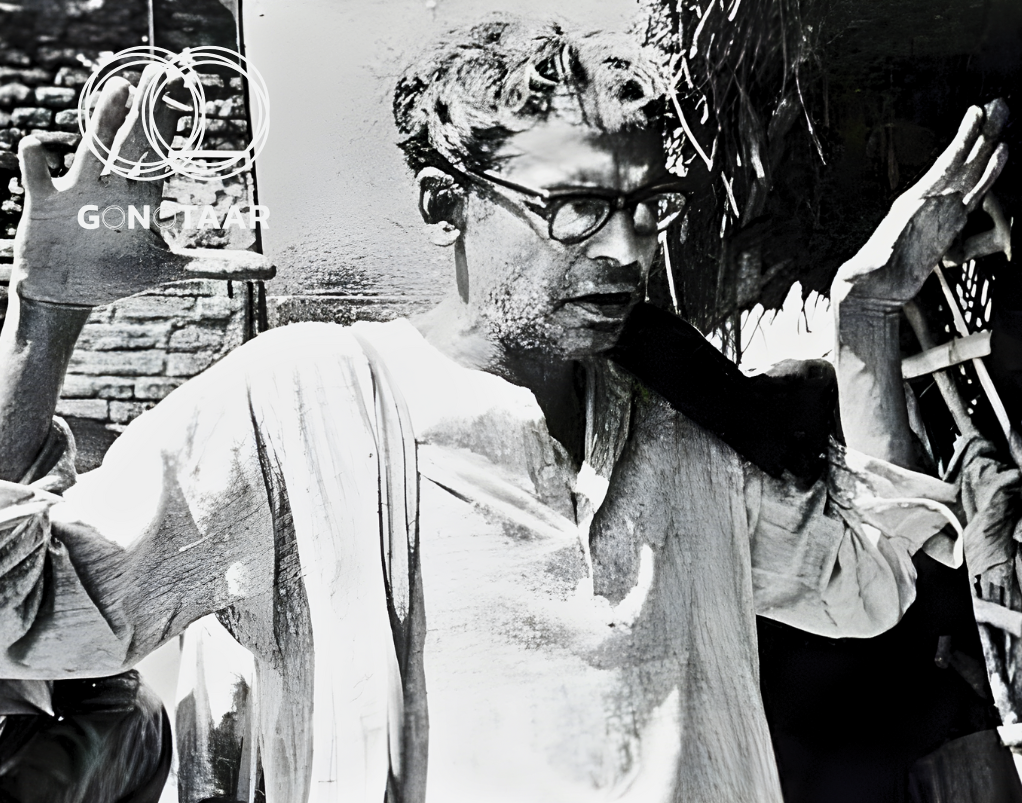Today marks the 100th birth anniversary of Ritwik Kumar Ghatak (1925-1976), a monumental and often melancholic figure in the history of Indian and Bengali cinema. While his contemporary, Satyajit Ray, captured the world’s imagination with lyrical humanism, Ghatak embraced raw intensity, using the camera as a weapon to chronicle the deep, permanent wound inflicted upon the Bengali soul by the 1947 Partition.
Born in Dhaka, Ghatak was personally marked by the forced migration of his family to Kolkata. This experience—the trauma of being uprooted, the anguish of lost identity, and the struggle of the refugee—became the singular, volcanic core of his artistic life. His cinema is not merely historical documentation; it is an epic psychoanalysis of a broken people searching for a home that no longer exists.
The Trilogy of Anguish
Ghatak’s most enduring legacy lies in his Partition Trilogy: Meghe Dhaka Tara (The Cloud-capped Star, 1960), Komal Gandhar (E Flat, 1961), and Subarnarekha (The Golden Thread, 1962). These films transcended conventional storytelling, employing a jarring blend of epic melodrama, powerful sound design, and Brechtian alienation techniques to ensure the viewer felt the protagonists’ suffering in their bones.
Meghe Dhaka Tara, arguably his masterpiece, features the unforgettable Nita, who sacrifices her life force to keep her displaced family afloat. Her final, piercing scream, “Dada, ami banchte cheyechilam!” (Brother, I wanted to live!), remains one of the most powerful and heartbreaking cries in cinematic history—a universal lament for denied life and fractured dreams.
His use of archetypes, particularly the primal figure of the Mother (often representing the lost Motherland, Bengal), lends his narratives a mythic weight. Through characters struggling with poverty, moral decay, and uncertainty, Ghatak delivered a searing critique of the new post-Independence society, which he felt had cynically betrayed the promises of freedom.
A Prophetic Voice
During his lifetime, Ghatak remained a passionate, uncompromising, and often controversial figure. Unlike Ray, he was largely ignored by audiences and critics in Bengal, his films frequently failing commercially. However, his brief but transformative stint as a professor at the Film and Television Institute of India (FTII) in Pune created a lasting impact, mentoring a generation of filmmakers who would carry his vision forward, including Mani Kaul, Kumar Shahani, and Adoor Gopalakrishnan.
On this centenary, Ritwik Kumar Ghatak’s work is more relevant than ever. As global displacement, refugee crises, and political fractures continue to define the 21st century, his cinema serves as a profound and empathetic guide. It is a timeless reminder that while political lines may divide a map, the human heart remains undivided in its longing for belonging. We salute the director who, though he felt like a restless refugee all his life, left behind an artistic homeland for us all to inhabit.




